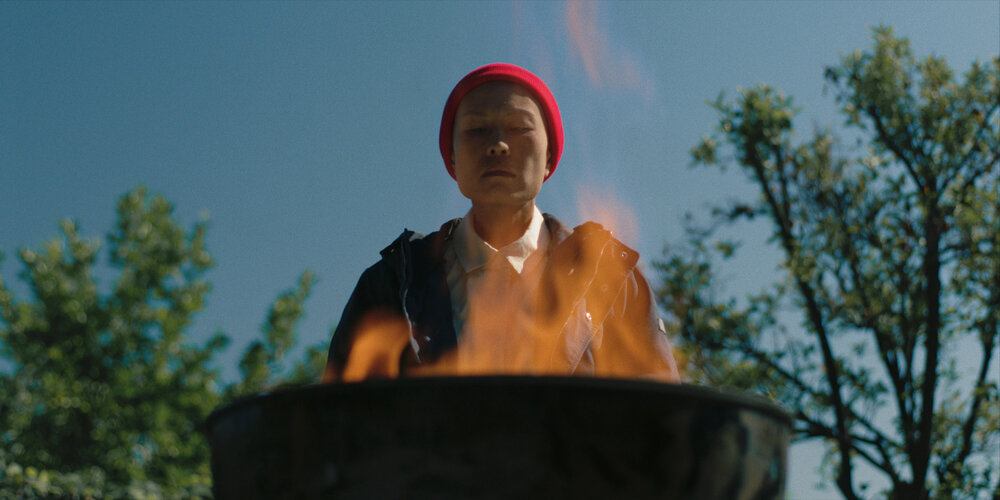By Mark Saldana
Rating: 4 (Out of 4 Stars)
We live in a sad and scary time when school shootings occur almost regularly. It seems like just when we are in the process of healing and recovering, another violent tragedy takes place. It is indicative of our inability to unite and help fight the causes of these dark and disturbing disasters that destroy lives. Writer/director Paul Kowalski takes on this complex and difficult subject with an outstanding film that offers an intimate look into these problems, and an insightful perspective that feels all too real.
Paper Tiger focuses on the lives of a single Chinese-American mother named Lily (Lydia Look) and her beleaguered son Edward (Alan Trong) who both face some tremendous challenges in the modern world. Both mother and son are still recovering from the untimely death of husband and father Michael (Mark D. Espinoza). Though Lily is crushed by the loss of her husband, it is Edward who has suffered the most after his father’s death. Already troubled by an undiagnosed mental illness, Edward attempts to cope with life’s struggles through the perception of strength that he believes he is discovering through his delusions and hallucinations. As his afflictions surface to the point that seriously concerns Lily, she attempts to help him, but in ways that won’t bring shame to her or the family. This attempt to salvage her family pride proves problematic, as Edward’s condition worsens to where Lily believes that he has the potential of becoming the next high school shooter to make the national news.
With Paper Tiger, Paul Kowalski has made a formidably powerful and emotional film that speaks volumes about a regular problem that could continue to disturb our world. Loosely based on a true story, the film feels genuine and realistic thanks to the tremendous writing and direction by Kowalski. The story and character development here is phenomenal. Kowalski never over plays any elements of the story to where his messages come across as heavy-handed. He develops his lead characters in ways that are highly relatable and empathetic. Even the Edward character is made relatable to where people who do not suffer from mental afflictions can understand how he feels. Though Edward is never truly portrayed as a monster, he is never elevated to the problematic role of hero.
As Edward, actor Alan Trong gives an excellent performance that is of much recognition and perhaps, accolades. It is a fully realized and fleshed character that, sadly, has a place in our real world. Lydia Look also gives a sublime and heartbreaking turn as Lily, a woman who is not only a victim of circumstances beyond her control, but is also a victim of her own selfish pride. Though not an abhorrent character, one can certainly feel frustrated and sometimes devastated by her decisions and actions. Lily is most definitely a sympathetic character, but one that ultimately comes to some disturbing conclusions.
This film is the second and last film that I watched at AFF this year to receive my highest rating of four stars. It is an excellent movie with important messages that I hope will reach mass audiences in the near future. I feel that the problem of school shootings will remain an afterthought until the next one occurs. I know that with COVID-19 our nation already has a lot on our plate, but everytime we sideline the issues of mental illness and gun violence in our schools, we are simply waiting for the next tragedy to happen. This film serves as a tragic reminder that this problem will not just go away. We must make efforts to remedy it.
